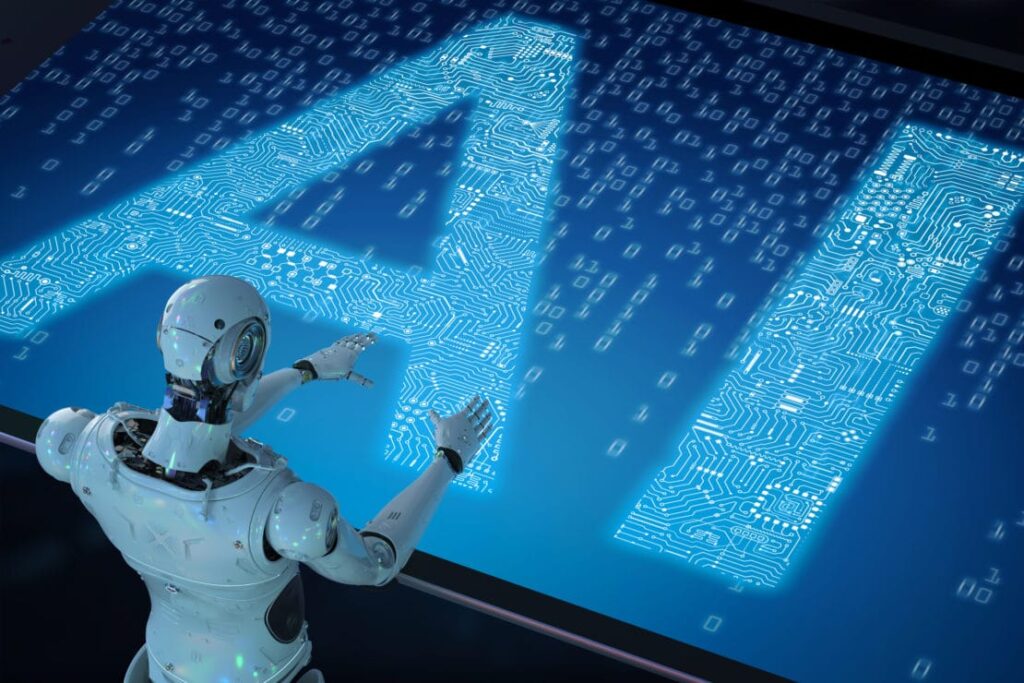
Artificial Intelligence (AI) is set to continue progressing in the years to come. This technology has assisted computers in managing and using large sets of data in a decision-making processes. Technology giants including Facebook, Apple, Google, and others, have invested their efforts, time, and money in incorporating AI. Other companies have implemented preventative measures to discourage people regarding the limitations and capacities of AI.
Artificial intelligence has become a large part of our day-to-day lives. Nowadays, you can find machine intelligence everywhere, whether it is through an announcement at the airport, in automatic directions in Smartphone, or even in a cruise controller. Although some people have been using artificial intelligence for quite some time, it is becoming an essential part of almost every industry. Every business wants to develop and implement new ideas to boost sales. Artificial intelligence enhances innovation’s scope, thereby evolving from a manual workforce to something greater in the future.
AI and Autonomous Transportation
According to Hani Zeini, the complete shift to AI-guided transportation systems are on their way to becoming a daily reality. Global brands have been working hard to establish themselves to utilize this technology. Even brands like General Motors plan to bring driverless vehicles onto the market and to roads around the world. Developers are working on algorithms to allow machines to learn from data applied by humans. This will ensure that the systems run effectively and smoothly. And, with this, brands could be looking forward to crucial changes in and around industries specializing in shipping products worldwide.
AI and Employment
Today, AI is being introduced and executed across various sectors globally. This technology has gained relevance across many job roles, catering to similar tasks that human professionals do with both efficacy and accuracy. The nature of this technology requires less time to perform jobs. AI also removes the scope of human error. Hence, the future might witness AI substituting difficult human tasks, and it may be linked to jobs in new channels. Additionally, the excess utilization of automation will reduce the expense of services and goods, thereby minimizing living costs considerably.
AI and Decision Making
The use of artificial intelligence enables the workforce to make smart decisions. Artificial intelligence (AI) plays many roles. It helps in providing forecasts, analyzing trends, and easing coordination of data delivery. AI can also measure uncertainty in a firm, thereby making decisions accordingly. Firms can program machine intelligence to imitate emotions from humans. Hani Zeini explains that these machines can undertake wise decisions, and improve the efficiency of a business firm.
AI and Solution to Complex Issues
Artificial intelligence development started with simple machine learning, which was advanced to deep learning models, thereby enabling them to solve complex problems. In addition to customer interaction, machine intelligence can also detect forgery from management or from the client. It can forecast the weather as well as resolve a medical diagnosis. Business firms address challenges with artificial intelligence and solve their problems with efficiency, thereby increasing productivity and minimizing expenditure.
AI and Efficient Customer Service
Artificial intelligence answers customer inquiries and addresses grievances immediately, thereby coming to a solution in record time. Hani Zeini points out that many business firms use chat boxes on their websites that generate automatic replies to customer’s queries. Natural language processing technology enables companies to use personalized messages for consumers, thereby helping them look for the best solution to a problem. This expert technology minimizes burden experiences by service staff and enhances their productivity.
AI and Education
In the forthcoming years, AI-enabled education systems will learn more about individual preferences. And, since it can aggregate data, the systems can expedite education research and new tool development. The future of academia will have intelligent tutors and AI technologies to provide a personalized education. AI will also expand educational access, which will make retraining easy and learning lifelong. This technology might process individual student data in the future. This could help someone who needs extra attention in classes. However, by 2030, one can expect the line between individual and classroom learning to have faded significantly.
AI and Diminishing Errors
Automation of business tasks minimizes the chance of errors. Artificial intelligence tools enable the workforce to enter data, analyze applications, and process jobs. One of the great benefits of artificial intelligence is that expert technicians work efficiently and reduce data processing problems. The tools of artificial intelligence are beneficial to firms that require error-free working mechanisms.
AI and Healthcare
Utilizing AI for clinical diagnosis support, early alerts, and risk scoring are some of the most encouraging signs of advancement. By fuelling a new generation of tools and systems that make efficient advances in delivering care, healthcare can be transformed considerably. As such, AI can introduce clinical innovations and new medical technology in the healthcare field. According to Hani Zeini, smart devices are vital for observing patients in the ICU and monitoring their bodily functioning. AI can be used to upgrade the capacity to recognize deterioration in the health of a patient or to sense complications. This technology can improve outcomes and lessen costs.
AI and Entertainment
People are expecting the entertainment industry to change drastically. The Utilization of AI will make this industry more customized, engaging, and interactive in the years to come. There will be a proliferation in hardware and sensors to provide for companion robots, haptics, and virtual reality to enter your home. Furthermore, the user will be able to interact with entertainment systems through means of conversation.
Conclusion
With the pace at which AI is expanding, very soon, it will be used in every industry. The use and application of AI today has already touched upon domains like economics, law, policy, and political science. In the years to come, AI will permeate space exploration, warfare, education, and autonomous transportation. It will gradually change the way humans use technology and will evolve the sector to a whole new level.

Author’s Bio:
Walter Moore is a writer and notable management and digital marketing expert who suggests following the steps of Hani Zeini in different fields. He is an experienced digital marketer and has helped e-commerce businesses in all niches gain with his effective marketing strategies and guidance.